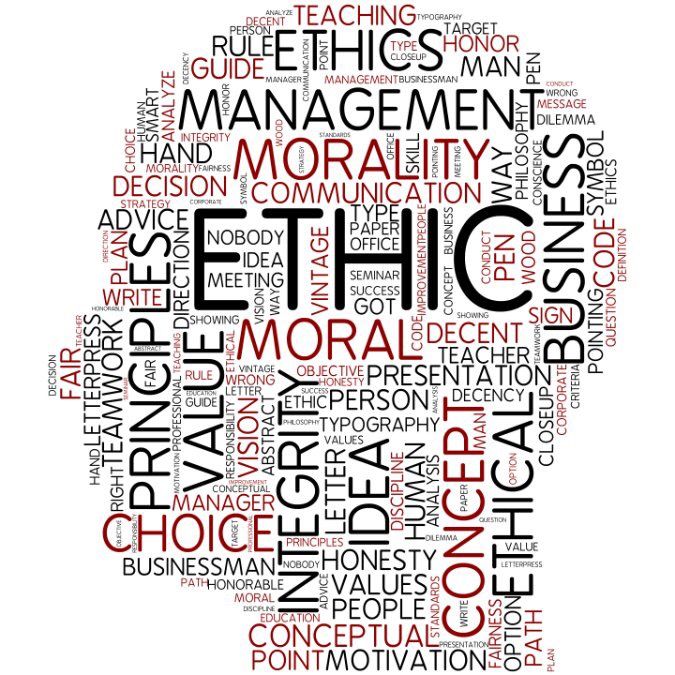Ethics in Writing Journal Research Papers | Ethics for Authors
Ethics for Authors

Up until now, you might have considered using scientific writing to present the results of your research. Yes, you have been thinking correctly, but when writing scientific papers, keep in mind a few additional crucial points and Ethics in Writing Journal Research Papers. Among them is ethics. In a nutshell, ethics is a body of guidelines that governs a person’s behaviors or choices when doing and disseminating research.
Academics and scholars encounter moral conundrums on a regular basis, just like everyone else in their field. It is the responsibility of every scholar, researcher, and academician to preserve the moral standards of scientific writing and study. Aspirations and ethical standards are the cornerstone of scientific advancement. This website was made specifically to disseminate important information on ethical ideas and difficulties in producing scientific research. You may also check: How to write a good Cover Letter .
Ethical Considerations in Scientific Writing.
The two most crucial ethical issues in scientific writing are plagiarism and authorship.
What constitutes plagiarism?
It is tough to define plagiarism in a few phrases. However, it may simply describe as the unauthorized use of another person’s work, ideas, results, tactics, or publications without proper attribution. Generally, using another person’s words considered plagiarism. In addition, using one’s own work without proper reference considered plagiarism, sometimes known as self-plagiarism. Any work that has published cannot be reused in any way.
Many novices think about employing existing text with diction modifications and paraphrase. Such tactics provide no good consequences. The employment of such approaches constitutes plagiarism. Furthermore, reusing any graphic content without adequate acknowledgment is plagiarism. Modern technology has both advantages and downsides. With today’s computers and cellphones, newbies may easily copy and paste any content from any source. Young researchers and academics should learn more about citation and reference. Remember that scientific misconduct is now considered a criminal.
Why do writers resort to plagiarism so often?
New writers typically aren’t aware of the exacting guidelines about plagiarism. Consequently, the plagiarism is often accidental. However, a lot of writers purposefully seek to plagiarize for a variety of reasons. The pressure that today’s students encounter is the first and most significant factor. People frequently say things like “Publish or perish.” This suggests that you will either die or publish. Scholars are put under additional strain by such ideas.
Language is still another obstacle. Despite their dedication to their job and study, many academics struggle with language and presenting abilities. Therefore, they turn to plagiarism in order to write literature of high quality. Moreover, some writers lack the necessary time. As a result, they try duplicating texts rather of creating their own in order to finish it quickly.
How to avoid plagiarism?
The following criteria should adhere to in order to prevent plagiarism:
Citation marks and special symbols should use in accordance with scientific writing standards. You can compose a quote if you wish to utilize the exact same words that another author has used. Put the text within quote marks and include the name of the author.
Learning how to paraphrase is another crucial skill you should have. It lets you express someone else’s thought in your own words.
Be sure to reference and cite sources correctly. Whenever you mention someone else’s work, make sure to provide due credit.
If you lack the necessary writing abilities, you may also seek the advice of specialists.
Use the applications or websites that offer plagiarism detection services.
What is a Authorship? (Ethics in Writing Journal Research Papers)
Critical concerns are those related to authorship. Any problem pertaining to writing has the potential to seriously harm an author’s reputation. The identification of author contributions and author order are the primary concerns about authorship. Academics and students are under more pressure than ever before to have their names published in as many journals as they can. You will charge with dishonesty if you offer credit to someone who hasn’t contributed anything at all or if you deny someone credit when it deserve.
The following is a description of typical forms of authorship misuse:
Coercion authorship: the authorship obtained by coercive means. Typically, superiors or educators take advantage of their power to compel their pupils or subordinates to appear in the newspaper.
Honorary authorship is bestowed onto someone who hasn’t contributed anything in order to obtain unfair advantages. This is what many academics do in an attempt to become well-known or elevate their work.
Mutual support authorship is when two or more writers work together and credit one another as authors.
Ghostwriting: writing a paper without mentioning the real author’s name. Those who were not participating in the study have taken credit for the entire endeavor.
Denial of authorship: All authorship rights are totally taken away from the writer. The publication of the work occurs without properly acknowledging those who have contributed sufficiently.
How can we prevent authorship misuse? (Ethics in Writing Journal Research Papers)
Some helpful pointers to prevent authorship abuse in your research article or literature review are included below:
Inform your colleague about your authorship or acknowledgement before requesting help. It’s conceivable that your buddy or coworker has unrealistic expectations for the results. Therefore, before beginning, make sure the information are clear.
Keep in mind that sponsorship, data collection, and group study supervision are not acceptable for authorship.
Clearly outline each person’s responsibilities before beginning the job.
Before adding a person’s name to the author’s list, confirm that they have contributed anything noteworthy. Additionally, be sure that the document is read and revised by each person receiving credit prior to final submission.
Conclusion
Unfortunately, writers frequently disregard ethical standards. It’s never too late, though. When producing your research paper or article, be sure to adhere to all ethical rules. Many things rely on your own personal efforts!